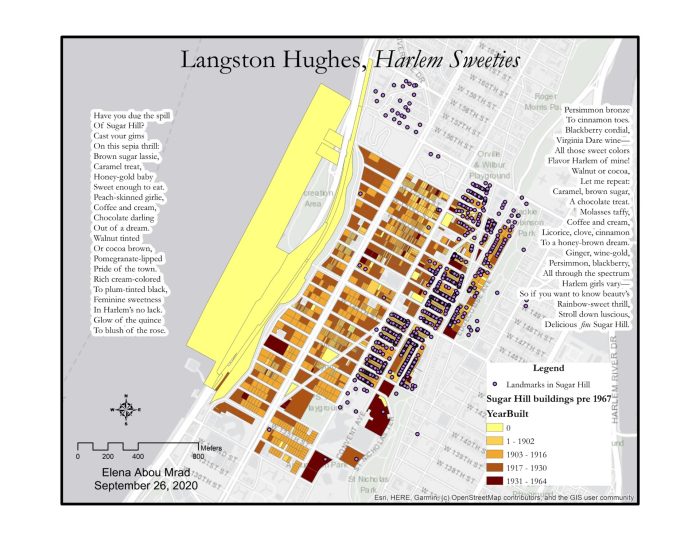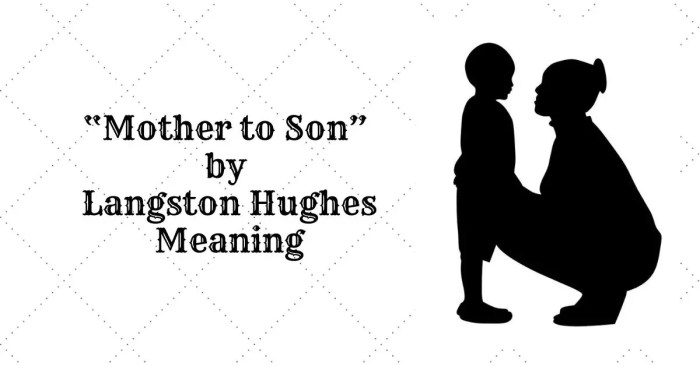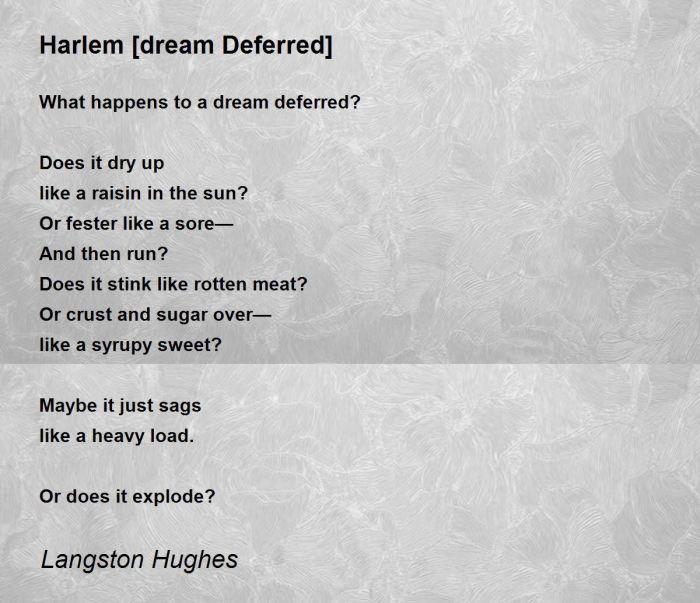The creation poem by langston hughes – Langston Hughes’s “The Creation” poem is a captivating exploration of identity, creation, and social commentary. This masterpiece delves into the complexities of self-discovery, the power of creativity, and the ongoing struggle for social justice.
Through its rich imagery, symbolism, and rhythmic language, Hughes paints a vivid picture of the universe’s origins, the human experience, and the enduring quest for meaning.
Overview of “The Creation” Poem: The Creation Poem By Langston Hughes

Langston Hughes’ “The Creation” is a powerful and evocative poem that explores themes of identity, creation, and the struggle for self-determination. Written in 1923, the poem reflects the social and cultural context of the Harlem Renaissance, a period of artistic and intellectual flourishing among African Americans.
The poem’s central theme is the search for meaning and purpose in a chaotic and often oppressive world. Hughes depicts the speaker’s journey of self-discovery and the role of creativity in shaping identity. The poem also serves as a social commentary on issues of racism and inequality, advocating for the empowerment of African Americans.
Poetic Structure and Techniques
The poem is written in free verse, with a loose and irregular rhyme scheme. Hughes uses a variety of literary devices to create a vivid and evocative imagery, including metaphor, simile, and personification. The poem’s structure is non-linear, moving between past and present, and often employing stream-of-consciousness techniques.
Exploration of Identity and Creation
The speaker in “The Creation” embarks on a journey of self-discovery, seeking to define their identity and purpose in the face of adversity. The poem explores the complex relationship between individual and collective identity, and the role of creativity in shaping self-expression.
Hughes uses the act of creation as a metaphor for the process of self-discovery and empowerment. The speaker’s journey parallels the creation of the world, as they seek to bring order and meaning to their own lives.
Influence of African American Culture, The creation poem by langston hughes
The poem is deeply rooted in African American culture and spirituality. Hughes incorporates elements of folklore, music, and religious traditions, drawing on the rich heritage of his community.
The poem’s rhythm and language echo the cadences of African American spirituals and blues, creating a sense of authenticity and connection to the African American experience.
Social Commentary and Activism
“The Creation” also serves as a social commentary on issues of racism, inequality, and the struggle for self-determination. Hughes uses the poem to advocate for the empowerment of African Americans and to challenge the oppressive structures of society.
The speaker’s journey of self-discovery is intertwined with the struggle for social justice, as they seek to create a better world for themselves and their community.
Critical Reception and Legacy
“The Creation” has been widely praised for its powerful imagery, innovative use of language, and its exploration of important social and cultural themes. It is considered one of Hughes’ most important works and has had a lasting impact on African American literature and beyond.
The poem continues to be studied and celebrated, inspiring new generations of readers with its message of hope, resilience, and the transformative power of creativity.
Questions and Answers
What is the main theme of “The Creation” poem?
The main theme of “The Creation” is the exploration of identity, creation, and social commentary.
How does Hughes use literary devices in the poem?
Hughes employs various literary devices such as imagery, symbolism, and metaphor to create a vivid and evocative poetic experience.
What is the significance of the speaker’s journey in the poem?
The speaker’s journey represents the universal human experience of self-discovery and the search for meaning.


